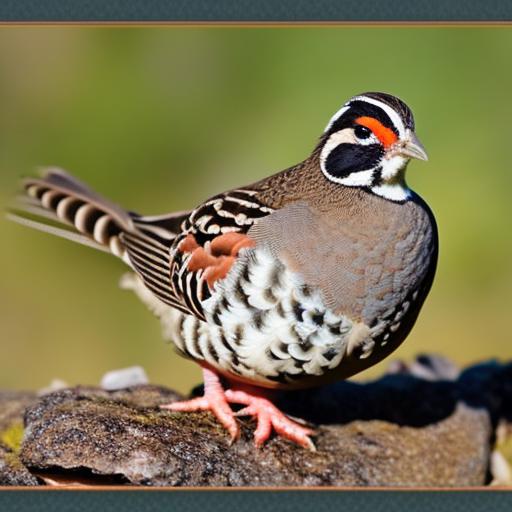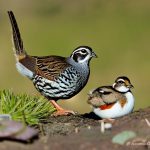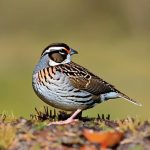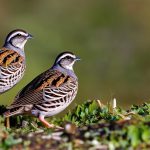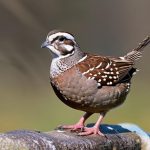When it comes to housing and shelter for poultry, it is important to provide a safe and comfortable environment for the birds. This includes providing a secure coop or housing structure that protects the birds from predators and the elements. The coop should be well-ventilated to ensure good air quality and prevent the buildup of harmful gases. It should also be spacious enough to allow the birds to move around freely and engage in natural behaviors such as scratching and dust bathing.
In addition to a secure coop, it is important to provide a suitable outdoor space for the birds to roam and forage. This can be achieved through the use of a fenced-in yard or pasture area. Providing access to outdoor space allows the birds to engage in natural behaviors and promotes overall health and well-being. It is also important to provide adequate roosting space within the coop to allow the birds to perch comfortably at night. Overall, providing suitable housing and shelter for poultry is essential for their health and welfare.
When it comes to housing and shelter for poultry, it is crucial to consider the specific needs of the birds in question. Different types of poultry may have different housing requirements, so it is important to research the specific needs of the birds you are keeping. For example, chickens may require nesting boxes for laying eggs, while ducks may require access to water for swimming and foraging. Additionally, it is important to consider the climate and weather conditions in your area when designing a poultry housing structure. Insulation, heating, and ventilation may be necessary to ensure the birds are comfortable and safe year-round. Overall, providing suitable housing and shelter for poultry is essential for their health and welfare.
Key Takeaways
- Providing adequate housing and shelter is crucial for the well-being of the animals.
- Proper feeding and nutrition are essential for the overall health and development of the animals.
- Maintaining good health and hygiene practices is important to prevent diseases and infections.
- Understanding the breeding and hatching process is important for successful reproduction.
- Implementing effective predator protection measures is necessary to ensure the safety of the animals.
- Socialization and understanding behavior patterns are important for the animals’ mental well-being.
- Familiarizing oneself with legal considerations is important to ensure compliance with regulations and laws.
Feeding and nutrition
Feeding and nutrition are crucial aspects of poultry care, as a balanced diet is essential for the health and well-being of the birds. Poultry should be provided with a high-quality commercial feed that is specifically formulated for their species and age. This feed should provide the necessary nutrients, vitamins, and minerals to support growth, egg production, and overall health. In addition to commercial feed, poultry may also benefit from access to fresh fruits, vegetables, and grains as part of a balanced diet.
In addition to providing a balanced diet, it is important to ensure that poultry have access to clean, fresh water at all times. Water is essential for digestion, temperature regulation, and overall health. It is important to regularly clean and refill water containers to prevent the buildup of bacteria and contaminants. Additionally, it is important to monitor the feeding habits of the birds to ensure they are eating enough and maintaining a healthy weight. Overall, providing a balanced diet and access to clean water is essential for the health and welfare of poultry.
Feeding and nutrition are crucial aspects of poultry care, as a balanced diet is essential for the health and well-being of the birds. In addition to providing a high-quality commercial feed, it is important to consider the specific nutritional needs of the birds in question. For example, laying hens may require additional calcium to support egg production, while growing chicks may require higher levels of protein for growth and development. It is important to research the specific nutritional needs of the poultry species you are keeping and adjust their diet accordingly. Additionally, it is important to monitor the body condition of the birds to ensure they are receiving adequate nutrition. Overall, providing a balanced diet and access to clean water is essential for the health and welfare of poultry.
Health and hygiene
Maintaining good health and hygiene practices is essential for keeping poultry healthy and free from disease. This includes regularly cleaning the coop or housing structure to remove waste and prevent the buildup of harmful bacteria. It is important to use suitable bedding material that can absorb moisture and control odors, such as straw or wood shavings. Additionally, it is important to regularly clean and sanitize water containers and feeding equipment to prevent the spread of disease.
In addition to maintaining a clean environment, it is important to monitor the health of the birds on a regular basis. This includes observing their behavior, appetite, and overall condition. Any signs of illness or injury should be addressed promptly by a veterinarian. It is also important to establish a regular deworming and vaccination schedule to prevent common poultry diseases. Overall, maintaining good health and hygiene practices is essential for keeping poultry healthy and free from disease.
Maintaining good health and hygiene practices is essential for keeping poultry healthy and free from disease. In addition to regular cleaning and sanitation practices, it is important to provide suitable dust bathing areas for poultry. Dust bathing is a natural behavior that helps birds maintain healthy feathers and skin by removing excess oil and parasites. Providing access to suitable dust bathing areas can help prevent skin and feather issues in poultry. Additionally, it is important to practice biosecurity measures to prevent the introduction and spread of disease on your property. This includes limiting visitor access, quarantining new birds, and preventing contact with wild birds. Overall, maintaining good health and hygiene practices is essential for keeping poultry healthy and free from disease.
Breeding and hatching
Breeding and hatching poultry can be a rewarding experience, but it requires careful planning and management. When breeding poultry, it is important to select breeding stock that exhibits desirable traits such as good health, temperament, and productivity. It is also important to avoid inbreeding by introducing new bloodlines into your flock on a regular basis. Additionally, it is important to provide suitable nesting boxes or areas for broody hens to incubate eggs naturally.
When hatching eggs, it is important to provide suitable incubation conditions such as temperature and humidity control. This can be achieved through the use of an incubator or by allowing broody hens to hatch eggs naturally. It is important to monitor the development of the embryos throughout the incubation period and make any necessary adjustments to ensure a successful hatch. Additionally, it is important to provide suitable brooding conditions for newly hatched chicks, including warmth, food, and water. Overall, breeding and hatching poultry requires careful planning and management to ensure successful outcomes.
Breeding and hatching poultry can be a rewarding experience, but it requires careful planning and management. When breeding poultry, it is important to consider the specific breeding goals you have in mind. For example, if you are breeding chickens for egg production, you may want to select breeding stock with high egg-laying potential. If you are breeding poultry for meat production, you may want to select breeding stock with good growth rates and feed conversion ratios. Additionally, it is important to consider the genetic diversity of your flock when selecting breeding stock to avoid inbreeding issues. Overall, breeding and hatching poultry requires careful planning and management to ensure successful outcomes.
Predator protection
Protecting poultry from predators is essential for their safety and well-being. This includes securing the coop or housing structure with sturdy fencing or wire mesh to prevent access from predators such as foxes, raccoons, and birds of prey. It is also important to reinforce doors, windows, and vents with predator-proof materials such as hardware cloth or heavy-duty latches. Additionally, it is important to regularly inspect the perimeter of the coop for signs of digging or burrowing from predators.
In addition to securing the coop, it is important to provide suitable predator deterrents such as motion-activated lights or sound devices. These deterrents can help scare off potential predators and protect your flock from harm. It is also important to supervise free-ranging poultry during daylight hours to prevent attacks from predators. Overall, protecting poultry from predators requires careful planning and management to ensure their safety.
Protecting poultry from predators is essential for their safety and well-being. In addition to securing the coop or housing structure, it is important to consider the specific predator threats in your area when designing predator protection measures. For example, if you live in an area with a high population of aerial predators such as hawks or owls, you may need to provide overhead netting or cover for outdoor areas where poultry roam. If you live in an area with a high population of ground predators such as foxes or raccoons, you may need to bury wire mesh around the perimeter of the coop to prevent digging or burrowing. Overall, protecting poultry from predators requires careful planning and management to ensure their safety.
Socialization and behavior

Poultry are social animals that thrive in group settings, so it is important to provide suitable socialization opportunities within your flock. This includes providing enough space for the birds to move around freely without overcrowding. Overcrowding can lead to stress, aggression, and poor welfare in poultry. It is also important to introduce new birds into the flock gradually to prevent bullying or fighting among established members.
In addition to providing suitable socialization opportunities within the flock, it is important to consider the specific social needs of different poultry species. For example, chickens are highly social animals that thrive on interaction with other birds, while ducks may benefit from access to water for swimming and foraging together. Providing suitable socialization opportunities can help prevent boredom and reduce stress in poultry. Overall, providing suitable socialization opportunities within your flock is essential for their well-being.
Poultry are social animals that thrive in group settings, so it is important to provide suitable socialization opportunities within your flock. In addition to providing enough space for the birds to move around freely without overcrowding, it is important to consider the specific social needs of different poultry species when designing socialization opportunities. For example, chickens are highly social animals that thrive on interaction with other birds, while turkeys may benefit from access to perches or elevated areas for roosting together. Providing suitable socialization opportunities can help prevent boredom and reduce stress in poultry. Overall, providing suitable socialization opportunities within your flock is essential for their well-being.
Legal considerations
When keeping poultry, it is important to be aware of any legal considerations that may apply in your area. This includes obtaining any necessary permits or licenses required for keeping poultry on your property. Some localities may have zoning regulations or restrictions on keeping poultry within city limits or residential areas.
In addition to zoning regulations, it is important to be aware of any animal welfare laws or regulations that may apply to keeping poultry. This includes providing suitable housing, feeding, and care for the birds in accordance with local animal welfare standards. It is also important to be aware of any biosecurity measures or disease control regulations that may apply in your area.
Overall, being aware of any legal considerations that may apply when keeping poultry is essential for ensuring compliance with local regulations and promoting good animal welfare practices.
When keeping poultry, it is important to be aware of any legal considerations that may apply in your area. This includes obtaining any necessary permits or licenses required for keeping poultry on your property. Some localities may have zoning regulations or restrictions on keeping poultry within city limits or residential areas.
In addition to zoning regulations, it is important to be aware of any animal welfare laws or regulations that may apply when keeping poultry. This includes providing suitable housing, feeding, and care for the birds in accordance with local animal welfare standards.
It is also important to be aware of any biosecurity measures or disease control regulations that may apply in your area.
Overall, being aware of any legal considerations that may apply when keeping poultry is essential for ensuring compliance with local regulations and promoting good animal welfare practices.
This includes understanding zoning laws, building codes, and health regulations that may impact the keeping of poultry. Additionally, being aware of any permits or licenses required for keeping poultry is important to avoid potential legal issues. By staying informed about legal considerations, poultry keepers can ensure that their practices are in line with the law and contribute to the well-being of their birds.
If you’re interested in learning more about keeping quails in the UK, you might also find our article on how to insulate a chicken coop helpful. Proper insulation is crucial for maintaining the right temperature and environment for your quails, especially during colder months.
FAQs
What are quails?
Quails are small ground-dwelling birds that are often kept for their eggs and meat. They are known for their distinctive calls and are popular among poultry enthusiasts.
What do quails eat?
Quails are omnivorous and eat a variety of foods including seeds, insects, and small plants. In captivity, they can be fed a commercial quail feed as well as fresh fruits and vegetables.
How do I keep quails in the UK?
To keep quails in the UK, you will need a suitable enclosure that provides protection from predators and the elements. Quails also require a balanced diet, clean water, and proper care to thrive.
Do I need a license to keep quails in the UK?
In the UK, you do not need a license to keep quails for personal use. However, if you plan to sell quail eggs or meat, you may need to comply with certain regulations and obtain the necessary permits.
What are the benefits of keeping quails in the UK?
Keeping quails in the UK can provide a sustainable source of fresh eggs and meat. Quails are also relatively low maintenance and can be kept in smaller spaces compared to other poultry, making them a popular choice for urban and suburban settings.
Meet Walter, the feathered-friend fanatic of Florida! Nestled in the sunshine state, Walter struts through life with his feathered companions, clucking his way to happiness. With a coop that’s fancier than a five-star hotel, he’s the Don Juan of the chicken world. When he’s not teaching his hens to do the cha-cha, you’ll find him in a heated debate with his prized rooster, Sir Clucks-a-Lot. Walter’s poultry passion is no yolk; he’s the sunny-side-up guy you never knew you needed in your flock of friends!

